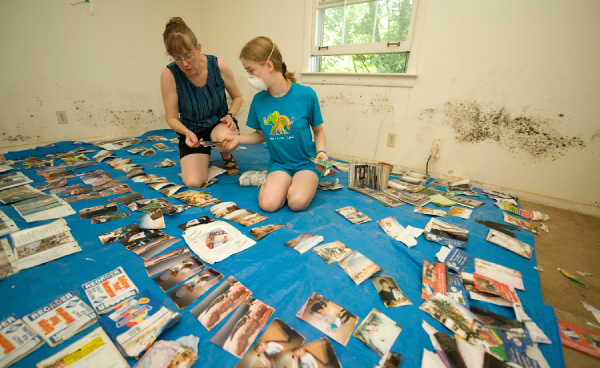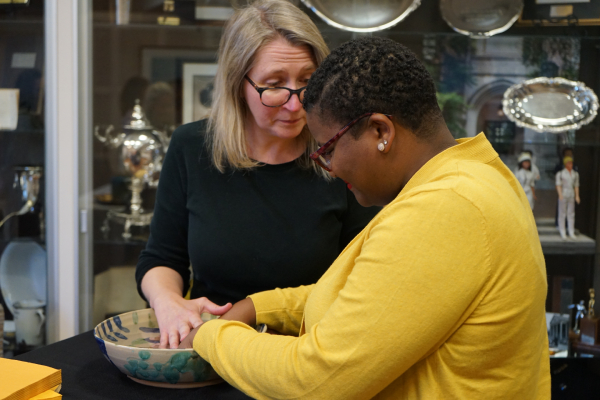Audrey Bowden | Cynthia Cyrus | Joni Hersch | Kathryn L. Humphreys | Jennifer Gaddy | Amanda Lea | Julia Phillippi | Jennifer Shinall
They say motherhood is the toughest job you'll ever love. That's true for this group of Vanderbilt researchers, who've built successful careers around researching various aspects of parenthood while raising their own children.
As communities prepare to celebrate Mother's Day on May 8, here's a snapshot of VU researchers who happen to be moms who research moms.
Audrey Bowden, associate professor of biomedical engineering, Dorothy J. Wingfield Phillips Chancellor Faculty Fellow
Research expertise: My research aims to improve the success rate of assisted reproductive techniques, including in vitro fertilization.
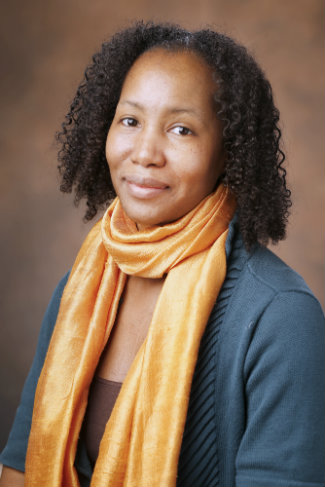
What is something your research found about motherhood that we wouldn't have otherwise known: One strategy that we are pursuing is to identify features of fertilized embryos that may help clinicians better predict which embryos are likely to implant successfully and will lead to a viable pregnancy. The techniques that we use allow us to see features of the cells inside of the embryos, to see the spatial relationships between these cells as the embryo develops, and to observe how the cells are affected by current IVF practices such as embryo freezing. These techniques are giving us new insights into what and how an embryo develops at its earliest stages.
How has being a mom influenced your research? As a mom, I connect with other women about the desire for children. Although my own pregnancies happened relatively easily early on, I connected deeply with many friends who have struggled to get pregnant; several of them ultimately turned to ART and IVF. My own experience of suffering a miscarriage also helps me to better empathize with the emotional challenges around fertility and further drives me to want to continue this research and make clinical impact. I know that our work is helping others achieve their dream of becoming mothers too.
Cynthia Cyrus, professor of musicology and affiliated faculty in Women's and Gender Studies
Research expertise: I research and teach about women and music. My scholarly research is on women's monastic communities and their written legacy, musical and otherwise, including their prayers against pestilence.
How have you incorporated discussion of motherhood into your teaching? This semester, which focused on musical women's biographies, we had a full unit on women's lives and identities-as wives or partners and, especially, as mothers. This included some of the traditional work on assumptions about musical mothers. Ruth Gipps, for instance, was dismissed as a "housewife composer" (1946), even though by that time (age 26) she had written 50 works, including two symphonies. And Clara Schumann has been criticized for going on tour shortly after the death of her husband, Robert (1846), when, in fact, concert touring was how she made her money-and she suddenly had to support a household full of children. We also read a long excerpt from
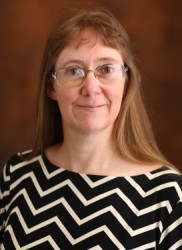
the memoir Seeing Sideways by rock musician Kristin Hersh talking about the vicissitudes of life touring with Doony, her toddler, while pregnant with her next child.
Best of all, however, was the student-generated content on this theme. One group presented on orchestral maternity policies (or their invisibility) and the unfairness of needing to vest in an institution before having access to even those limited resources. Another talked about Hallmark and Disney movies and cliches about musical women, including the "origin story" for "Time for Me to Come Home," which started as a song collaboration between Blake Shelton and his mother and then became a movie that inspired multiple sequels. That theme of family as inspiration drew another group to consider three pop songs: "Lullaby" by The Chicks, "Sweetest Devotion" by Adele and "My Baby" by Britney Spears. Each of these, students found, adopted a pure, childlike innocence in tone and lyrics, was addressed to the child and for the child, and showed the way that the child(ren) gave the mothers' lives new and better meaning, but also served to (re)position these women performers in the marketplace. The last group looked at mothers in musicals, including Prince of Egypt, Miss Saigon, Dear Evan Hansen, and Mamma Mia!, examining the way that sacrifice and selflessness are part of the cliche of good motherhood in these cultural products.
How has being a mom influenced your research? Well, there's the practical aspect: having children made me a "lark"; I regularly get up at 4:30 a.m. to write, because when the kids were small they'd get up to have time with me. I still put the writing part of my day first, which has helped me stay productive over the years. It's also made me a better teacher; I regularly ask my kids if assignments are clear or sound doable, and they have helped me be clearer about why a particular assignment is requested and how it fits into the semester. My children have also inspired aspects of my course planning during these COVID years. I developed an "everything is awful" clause that students can use when they need it. It doesn't matter the what or the why-awfulness has been part of all of our lives. We are all carrying burdens we couldn't have imagined three years ago. Being nimble enough to allow for and accommodate those moments while still holding everyone accountable for the learning-that's one of those things that parenthood teaches us. And then, coming from a family in which my husband was the primary parent and homeschooling dad and I was the full-time Type A overachieving worker, I tend to approach assumptions about gender and social roles with curiosity rather than acceptance. Why would someone think that? What story does it fit? What different story could we tell? Those were some of the questions that were at the front of my mind as I put together the Women and Music syllabus this semester.
"My own experience of suffering a miscarriage also helps me to better empathize with the emotional challenges around fertility and further drives me to want to continue this research and make clinical impact." – Audrey Bowden
Joni Hersch, professor of law and economics
Research expertise: The role of children is central to explaining gender disparities in the labor market and to studies of discrimination, so all of my studies take into account children. There is a well-established motherhood penalty in earnings, and my opting out shows how elite educated women opting out creates more inequity.
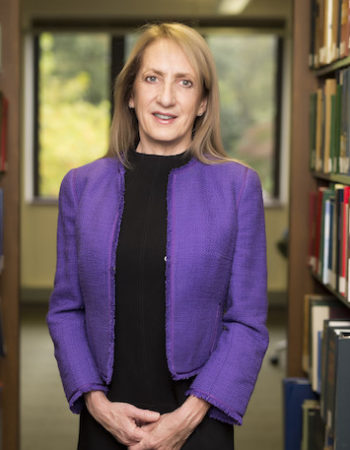
What is something your research found about motherhood that we wouldn't have otherwise known: I published a paper in 2016 with my colleague Jennifer Shinall titled "Something to Talk About: Information Exchange Under Employment Law." The takeaway is that women who take time away from the labor market to raise their children improve their hiring prospects by providing the reason they were out of the market instead of following what had been the conventional guidance to mask your time out of the market.
How has motherhood influenced your research? I have two stepchildren, now quite grown with a kid each of their own. I think my research was influenced by one of my professors-the rare woman economics professor who had children-telling me that all of her salary went for child care but that it was worthwhile as an investment in her career. My thought was, "Why is it 'her' salary and not her husband's?" They were paid the same. But the essential point is true, career disruptions are costly to a career and to society that has invested in educating women. So we as a society and country should have universal high quality and low cost child care.
Kathryn L. Humphreys, assistant professor of psychology and human development
Research expertise: My research focuses on infant and early childhood mental health; perinatal mental health; stress and adversity; and child development.
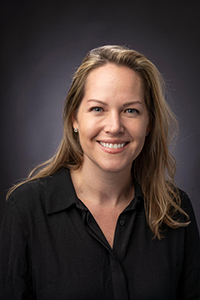
What is something your research found about motherhood that we wouldn't have otherwise known: We have several projects in the works that I believe will provide new insights into the transition to parenthood and parenthood across the first years of life. One I am particularly excited about examines how the brain changes in people who are pregnant (following conception until after birth). Our preliminary data suggests dramatic changes in gray matter volume across pregnancy, with nearly complete recovery in the year following birth. Right now we are midway through follow-up data collection to examine what may be driving these changes and whether commonly reported "side effects" of pregnancy (e.g., pregnancy brain fog, increased emotionality) may be consequences of these brain changes.
How has being a mom influenced your research? My research has been deeply influenced by my lived experienced as a mother. While my clinical work was primarily with parents and other caregivers of young children, trying to implement the same guidance in my life gave me increased empathy and understanding for the challenges (and joys!) parents experience while caring for infants and young children. My program of research has grown to better capture the transition period to parenthood, with a full acknowledgement that mothers/parents are independent beings with their own motivations, fears and dreams-not only serving a specific role in their children's lives. In addition, in the early days of my first child's life, I found that the two of us were often alone for most hours of the day, and I wondered more about how to measure how this experience may be shaping her development. With engineers at UC Berkeley, UCSD and now Vanderbilt, I worked to create wearable devices to measure the type of contact infants and young children have with the adults that care for them (TotTags) to better measure children's real-world experiences.
Jennifer Gaddy, associate professor of medicine
Research expertise: My research focuses on how nutrition status affects susceptibility to infectious diseases, primarily bacterial infections. Recently, our team investigated the role that breast milk plays in helping protect infants from infection. We know that breast milk is the gold standard for nutrition for babies, but less is known about how the individual components of breast milk inhibit germs that can cause diseases. Our lab is interested in how human milk components can inhibit bacteria, and we paired up with Professor of Chemistry Steven Townsend to study the molecules that make up breast milk.
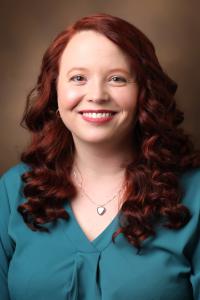
What is something your research found about motherhood that we wouldn't have otherwise known: Our research has illuminated some of the incredible properties that human milk contains. Together with Dr. Townsend, we have published a variety of papers in which we show that human breast milk components such as oligosaccharides (short chains of sugars) and lactoferrin (a glycoprotein that is abundant in human milk) can inhibit the growth and the ability of some bacterial pathogens to adhere to surfaces-a process that is one of the first steps in infection. We have also shown that human milk oligosaccharides can help antibiotics penetrate bacterial cells and work more effectively at killing those bacteria. Together, our research shows that human milk contains a variety of molecules that could be used to supplement infants who can't breastfeed or could be repurposed for novel antimicrobial strategies of the future.
How has being a mom influenced your research? Being a mother has influenced my research in so many ways. For example, I was a breastfeeding mother when I was completing my doctoral thesis. I was always curious about what molecules my body was synthesizing and giving my child during that process and how they were helping to nourish and protect him. I think that fueled my curiosity to try and figure out which molecules in breast milk have antimicrobial activity and to also determine if those could be used in other contexts, such as with antibiotic-resistant infections, which are becoming more and more prevalent. I also think that being a mom has helped me learn how to maintain an equilibrium between the technical components of a research program and the human ones. My research is dependent on a large team of colleagues and trainees, and keeping everyone working together productively involves good communication, multitasking, compassion and care-skills in which I became much more proficient when I became a mother.
"Career disruptions are costly to a career and to society that has invested in educating women. So we as a society and country should have universal high quality and low cost childcare." – Joni Hersch
Amanda Lea, assistant professor of biological sciences
Research expertise: The experiences people have during childhood, many of which involve moms, can have strong effects on their health later in life. Despite a lot of research linking early life experiences to later life health in humans, we still don't understand how these links manifest at the molecular and cellular level. Additionally, we do not understand why two people exposed to the
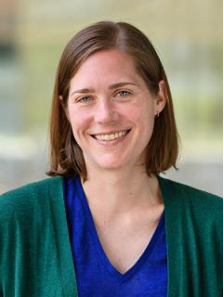
same early life experiences can have very different health outcomes. My research focuses on these open questions and aims to uncover the mechanisms that allow early life experiences to become "embedded" into lifelong physiology and health, as well as why some people show resilience while others show sensitivity after early life hardship.
What is something your research found about motherhood that we wouldn't have otherwise known: Much of my research is conducted with subsistence-level groups around the world that are still practicing their "traditional" ways of life (pastoralism, subsistence agriculture or hunting and gathering). A recent study I conducted with a subsistence pastoralist group in Kenya, the Turkana, showed that the relationship between early life experiences and adult health manifests very differently in this group than in Western societies. Specifically, many early life experiences that are stressful and detrimental to health in the U.S. did not impact health in the Turkana. This suggests that cultural, ecological and social differences across human groups may lead to a lot of variation in what a "stressful" early life experience actually is. We need to study early life effects on adult health across diverse cultures to appreciate and understand this heterogeneity. However, with that said, losing your mother during childhood is universally one of the most stressful early life experiences, and research I am doing shows that growing up without your mom impacts long-term molecular function and physiology across human societies and even across nonhuman primate species.
How has being a mom influenced your research? Being a mom has dramatically changed the logistics of how I do research: I'm far less likely to travel, to meet outside of business hours or to respond to requests on the weekends. Sometimes this can make research progress more difficult, but being a mom has in general encouraged me to have a healthier work-life balance. Being a mom has also stoked my curiosity about human development even further, beyond just the molecular and cellular mechanisms that are the primary focus of my research. On a daily basis, I am truly awed and fascinated by the physical, cognitive and socioemotional changes my kids are constantly going through.
Julia Phillippi, director of the nurse-midwifery specialty
Research expertise: My research is focused on how the format and content of prenatal care influence a mother's desire and ability to access care. By looking at birth locations, either at birth
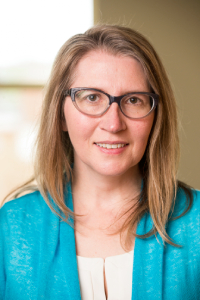
centers or hospitals, and at perinatal health care providers, my research measures the influence of those choices on birth outcomes.
What is something your research found about motherhood that we wouldn't have otherwise known: We need great data to study pregnancy and birth. Each bit of data represents a vital moment in the experience of a family. We need perinatal care models that welcome individuals as whole people and provide them with a team of providers who customize care to their needs and preferences.
How has being a mom influenced your research? Pregnancy and birth are transformative life events. As a midwife prior to becoming a mother and through my three pregnancies I learned so much about how vulnerable many people feel in getting perinatal care and how compassion, flexibility and informed choice can make such a big difference in the experience of pregnancy and parenting. Great care meets people where they are, ensures safety and helps the whole family gain knowledge and confidence in caring for each other. Knowing the intimate and visceral side of the care we provide keeps my research focused on how the health care team can best meet the needs of those we serve.
"I was always curious about what molecules my body was synthesizing and giving my child during that process and how they were helping to nourish and protect him." – Jennifer Gaddy
Jennifer Shinall, professor of law
Research expertise: My research examines the empirical effects of gender and health on workplace outcomes-including wages, employment and labor force participation-and how the law can ameliorate disparate workplace outcomes. Along these lines, I have done a great deal of research on pregnancy in the workplace, accommodation policies for pregnant women and mothers, and

parental leave policies.
What is something your research found about motherhood that we wouldn't have otherwise known: Pregnancy may be a very exciting time of life, but it is a very difficult time to be employed. My empirical research indicates that a "pregnancy penalty" still exists in the workplace-pregnant women and new mothers remain systematically underpaid and underemployed, in spite of the existing legal protections available in Title VII of the 1964 Civil Rights Act. On the bright side, my research also suggests that innovative state legislation that provides additional accommodation and leave support for mothers can help ameliorate the pregnancy penalty in the workplace.
How has being a mom influenced your research? As the mother of two young girls, I realize every day how inflexible U.S. workplaces remain for parents with caretaking responsibilities. I work in a job in which I have a great deal of control over both my work location and my work hours. I also make enough money to have sufficient regular and backup child care options at my fingertips. Yet even one sick child can throw my entire work schedule into chaos. Moreover, most working mothers in the U.S. do not have the same luxuries as I do with respect to job flexibility and backup care. When a child falls ill, many mothers in this country are still forced to choose between caring for that child and losing income, and maybe even their job. If my girls choose to become mothers, I hope my research will influence state- and federal-level policy changes to make the workplace more hospitable to them having both a career and a family.

